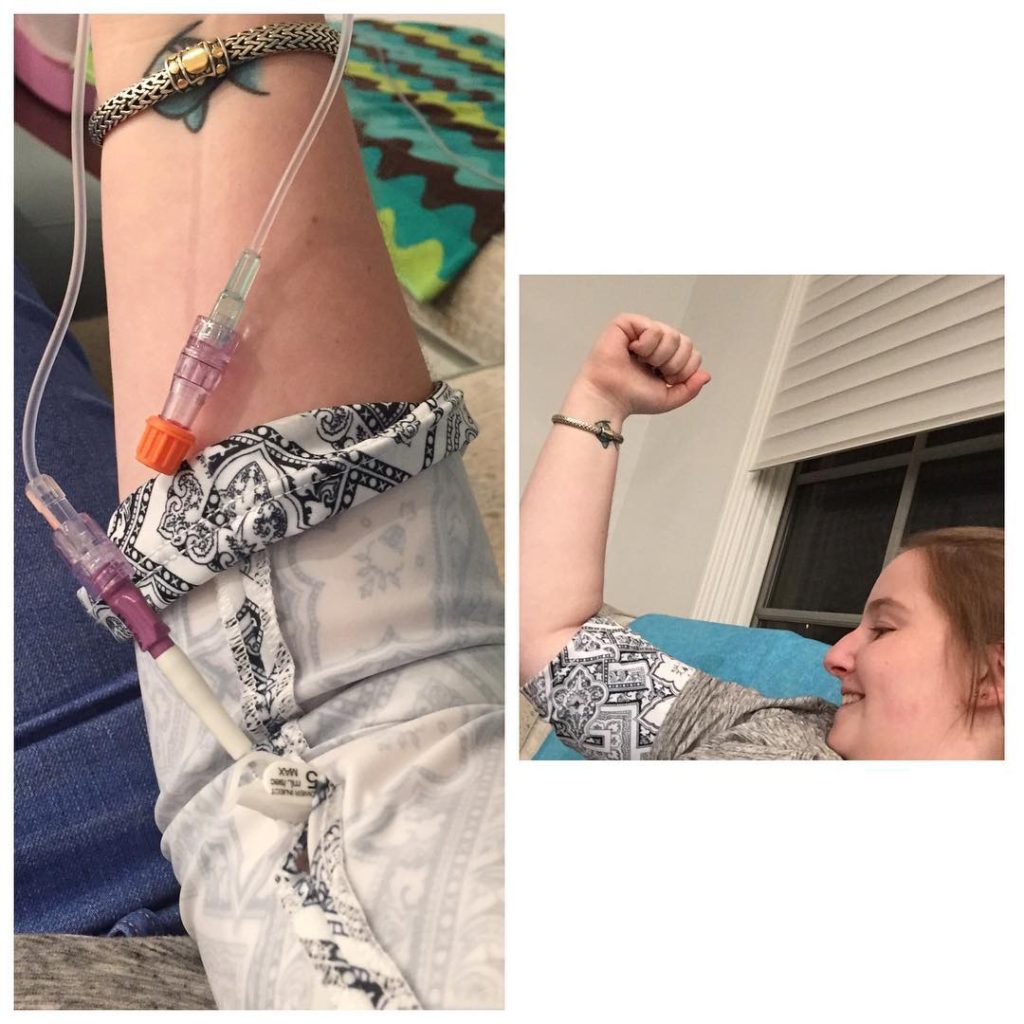Sara has had Lyme for about ten years now, but didn’t have a confirmed diagnosis until the beginning of December 2016. Can you believe it? Unfortunately, many individuals go through this situation. For those who may not know, Lyme disease is one that is living under the radar – there are so many patients out there who have it but who are not correctly diagnosed until much later on. By sharing stories like this, we hope to bring more attention to this illness so that healthcare providers can quickly diagnose and treat it.
From 6th grade on, Sara experienced a whirlwind of symptoms, from fatigue to weight gain, to hyperthyroidism, to everything else you could possibly imagine that comes with Lyme. She was too tired to focus on schoolwork and didn’t have enough energy to continue sports. Looking for answers, Sara shuffled from one doctor to the next. Even after visiting more than 20 doctors, she always received the same response: “you’re overthinking it; it’s just anxiety.” This is the same story that a lot of patients with Lyme face.
Thankfully, Sara received her Lyme diagnosis, so she is on her way through treatment. One of the most important things for a patient of any illness to have when going through treatment is a strong support system. It’s already a struggle to have to fight through illnesses such as Lyme, but not having a support system is something extremely beneficial many patients do not have. Whether it’s due to a lack of understanding or resources, it’s vital that friends and family get involved in making a difference in the process.
After interviewing Sara, we put together the 5 essential things she wanted all her friends and family to know about Lyme disease.
1. Lyme Disease is an invisible illness.
Some people can play it off as “not getting enough sleep the night before” or “being sore from sleeping in a bad position.” In Sara’s case, she tried to hide her pain from her college friends. Although some patients with Lyme may play it off as nothing, it is crucial to recognize that they are just putting up a front. Just because they aren’t acting sick or they “look fine” doesn’t mean that they indeed are. Recognizing that someone isn’t feeling well is an essential step in learning to empathize with that person.
2. Lyme is not airborne or contagious by physical touch.
Family and friends may not know much about the disease, so they choose to isolate themselves as a result of being afraid of contracting Lyme disease if they are near a Lyme patient.
3. Scheduling can be very challenging with Lyme disease.
If someone with Lyme makes plans but cancels last minute, it’s because they don’t know how they will feel on a day-to-day basis. Many times (as Sara explained), “I would have to cancel plans an hour or two before because I just felt horrible. The day before, I had been perfectly fine, but you never know what the next day will be like.” Plans aren’t canceled intentionally to hurt feelings – they’re canceled because there are only a few spoonfuls of energy to give. Patients with Lyme and other chronic pain illnesses may get exhausted from doing simple tasks such as getting dressed or grabbing a snack out of the fridge. It’s essential to be patient and understanding in situations like these because we cannot empathize with them and the pain they are going through.
4. There are many other symptoms and illnesses that can tie into Lyme.
In Sara’s case, she was diagnosed with severe ADHD, a learning disability, and depression. It is often hard for people to see the bigger picture (Lyme disease) because the symptoms can range all over the place.

5. When you have Lyme, you are forced to really put your health before anything else.
In Sara’s case, she was diagnosed with severe ADHD, a learning disability, and depression. It is often hard for people to see the bigger picture (Lyme disease) because the symptoms can range all over the place. Everyone can spare a day to stay home from work when they’re stick, but Lyme influences your daily life. Going off to college, Sara realized how difficult it was to balancer her school life with her Lyme disease treatments. As a result, she took a semester off after her diagnosis to focus on healing and rest before returning to school in January. This isolation can bring about depression, and it is when people need the most support. Simply sending a kind message or gift to help manage new Lyme treatments can go a long way in reducing stress and bringing joy. A functional gift, such a PICC Line Cover to manage intravenous treatments though a PICC, can ensure your loved one has one less thing to worry about through their health journey.

